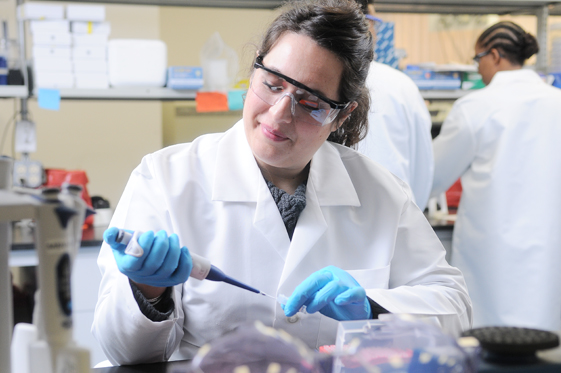The United States Department of Agriculture says food can't be "organic" if antibiotics were used during its production but the bacterial pathogen known as fire blight got an exception for apple and pear growers and use of the antibiotic oxytetracyline. Organic growers asked for it, they got it.
Wait, a bacterial pathogen in apples and pears? Why isn't biology tackling that? It should be easy enough to solve. Well, yeah, but organic farmers are Luddites about GMOs - and so instead got an exemption for antibiotics to protect their crops. They're okay with 20th century science, like antibiotics and spray-on pesticides and herbicides, just not 21st century science that would make toxic chemicals unnecessary.

And now they want to keep the antibiotics. The reason they want to keep the exemption is because using copper sulfate - an inorganic salt already exempted for organic food, which means you can use it and still be called 'organic' though you must wear boots, protective gloves and goggles and containers must spell out "DANGER" in giant letters - kills the fire blight canker but can damage the appearance of the fruit, which means a farmer has a lower chance of selling it. Antibiotics kill it without an appearance issue. So much for Joni Mitchell singing "I don't care about spots on my apples, leave me the bird and the bees" in 1970's "Big Yellow Taxi". The wealthy anti-science hippies buying organic food today very much care about having no spots.
"If organics is going to market itself as a more responsible type of agriculture, then they need to live up to it," Patty Lovera, the assistant director of the Food&Water Watch consumer group, told Steven Dubois of Associated Press. But farmers are not going to fall on the sword for an arbitrary metric either - and a whole lot about organic food is arbitrary. The threat is they will simply drop the organic label rather than go out of business and organic fruit would like to gain market share, not lose it. That's what big business does and $29 billion is not small.
The exemption is set to expire in October of 2014 and the National Organic Standards Board says it should not be renewed so it's 'a game of chicken' with growers who may decide to abandon the pointless organic label rather than lose their orchards. Maybe while they are at it, they can revisit exemptions for other synthetic ingredients, like alcohol, chlorine, oxytocin, glycerine, phosphoric acid, copper sulfate as mentioned above, dozens of inorganic extract colors, gelatin, gums, pectin, starch and even non-organic fortified cooking wines. The list is much longer, too long to recount here. Yet somehow Big Organic claims the Arctic Apple is 'not natural' because it doesn't get brown fast enough.



Comments